Biography
Canonici was born in Montevarchi in the Province of Arezzo. He made his debut at the Teatro dell'Opera di Roma in 1985 as the Duke of Mantua in Rigoletto and went on to establish an international career performing at many leading opera houses and concert halls, including La Scala, Covent Garden, Vienna State Opera, Teatro Comunale Florence, Opernhaus Zürich, Bayerische Staatsoper, Teatro Real in Madrid, Salzburg Festival, Opéra National de Paris, La Fenice, Concertgebouw in Amsterdam, Accademia Nazionale di Santa Cecilia in Rome, Teatro Regio di Parma, Rossini Opera Festival in Pesaro, Teatro San Carlo in Naples, and Teatro Massimo in Palermo.
In recent years his performances have included Les mamelles de Tirésias at the Macerata Festival and the Teatro Lirico in Cagliari; Paisiello's Il barbiere di Siviglia in Sassari; Nabucco at the Teatro della Fortuna in Fano; L'enfant et les sortilèges at the Teatro Piccinni in Bari, Teatro Filarmonico di Verona and the Teatro Valli di Reggio Emilia; Il cappello di paglia di Firenze at the Teatro Massimo in Palermo and Teatro Regio in Turin; Verdi Requiem with the Orchestra Verdi di Milano conducted by Riccardo Chailly; La vedova allegra at the Teatro Filarmonico di Verona, and L'heure espagnole at the Teatre Principal in Palma de Mallorca.
Since 2008, he has been Artistic Director of Opera Festival, a cultural association created in 1997 which organizes classical music events, shows and festivals in Florence and Tuscany. [1] During his tenure as Artistic Director, he has worked with the Orchestra del Maggio Musicale Fiorentino, the Tuscany Regional Orchestra and with the Tuscan Sun Festival, organizing concerts, recitals and new productions of The Barber of Seville , Aida , Die Zauberflöte , La traviata , La bohème , Gianni Schicchi , Don Giovanni , Carmina Burana , Verdi Requiem, and Ravel's Boléro .
An art lover with long experience in the antiques trade, he has worked as an expert with private television stations, creating and presenting programs devoted to art. In 2010 he was appointed Director of the Museum of Sacred Art in Montevarchi, his native town. [2] That same year he took part in the 60th Sanremo Music Festival where he won second place. After his success at Sanremo, which sparked a new career in crossover and pop music, he recorded the pop album Italia, amore mio. [3]

Massimo Ranieri is an Italian singer, actor, television presenter and theatre director.
Marco Tutino is an Italian composer. His emergence during the late 1970s was as the spearhead of an Italian Neo-Romantico group, founded with two other composers, Lorenzo Ferrero and Carlo Galante. He graduated from the Milan Conservatory, where he had studied flute and composition, in 1982.
Natalia Rom, soprano, was born in Kazan, in the Soviet Union, on May 14, 1950, and graduated from the Leningrad Conservatory. In late 1976, she emigrated to New Orleans, where she attended Loyola University's College of Music, and studied voice with Patricia Havranek. In 1979, she made her professional debut in a small role in the New Orleans Opera Association's Die Zauberflöte. That same year, she won the Metropolitan Opera National Council Auditions. In 1980, she sang the title role in Aïda, for the Seattle Opera.

Ildikó Komlósi is a Hungarian mezzo-soprano.

Salvatore Fisichella is an Italian operatic tenor known for his roles in bel canto operas, especially those of Rossini, Donizetti and Bellini. He has been recognized for the ease and vocal brilliance of his singing, and for having sung more of the leading roles in Bellini's operas than any other 20th century tenor.

Carlo Colombara is an Italian operatic bass. He has sung leading roles in many major opera houses including Teatro alla Scala ; the Vienna State Opera ; the Real Teatro di San Carlo ; the Arena di Verona ; the Royal Opera House, and the Metropolitan Opera.
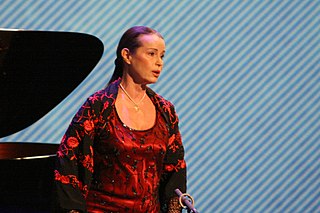
Elizabeth Norberg-Schulz is a Norwegian-Italian operatic soprano.

Marcello Giordani was an Italian operatic tenor who sang leading roles of the Italian and French repertoire in opera houses throughout Europe and the United States. He had a distinguished association with the New York Metropolitan Opera, where he sang in over 240 performances from the time of his debut there in 1993. He founded the Marcello Giordani Foundation to help young opera singers.
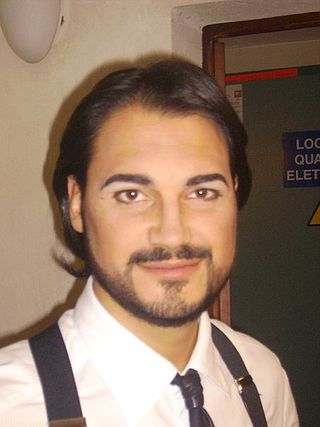
Francesco Demuro, is an Italian operatic tenor. He was born in Porto Torres, Sardinia. By the age of ten, Demuro made his first stage appearance, and by the age of twelve, he had joined the Minicantadores, a group of young singers of traditional Sardinian songs in the genre known as cantu a chiterra of which he became a leading representative.

Nino Machaidze is a Georgian operatic soprano. She performs in 19th-century Romantic repertoire, primarily in operas by Rossini and Verdi as well as French operas. Beginning her career at La Scala, she gained international attention after being cast as Juliette in Gounod's Roméo et Juliette at the 2008 Salzburg Festival, after which she earned the nickname "Angelina Jolie of Opera" from the Austrian press.
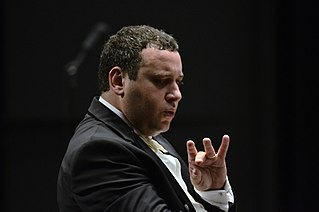
Antonino Fogliani is an Italian conductor.
Ștefan Pop is a Romanian operatic tenor. He is considered among today's leading lyric tenors and he is best known for bel canto repertoire. He has won several prizes including, in 2010, Plácido Domingo's Operalia competition and the Seoul International Music Competition.
Amarilli Nizza is an Italian operatic soprano.
Laura Giordano is an Italian lyric soprano.
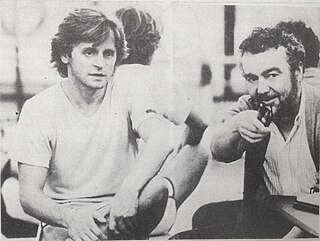
PierLuigi Samaritani was a renowned opera director/production designer, who began his career at a young age, working alongside some of the greatest names in theatre, opera and ballet, such as Lila de Nobili, Giancarlo Menotti, Franco Zeffirelli, Luciano Pavarotti, Mikhail Baryshnikov, Rudolf Nureyev and many more. Samaritani had an enormous talent, which allowed him to take on all the roles the theatre, opera and ballet demanded, making sure to always be involved in all aspects of his productions even when delegating. From the creation of his "sketches" of the set, which were more like works of art in and of themselves to the smallest change in an extra’s costume, he was a true perfectionist preoccupied with every detail. His productions graced the stage of countless opera houses and theaters, amongst them La Scala di Milano, Teatro Regio of Parma, The Metropolitan Opera House, American Ballet Theatre and the Festival of Two Worlds at Spoleto, where he collaborated for many years, alongside his dear friend, Gian Carlo Menotti. The Teatro Lirico Sperimentale di Spoleto founded in 1947 in Spoleto, by Adriano Belli created a special award carrying the name of Pier Luigi Samaritani, awarded each year to the set designer with the best set design of the opera season.

Giorgio Berrugi is an Italian operatic tenor.

Gaston Rivero is an Uruguayan-US American operatic tenor.
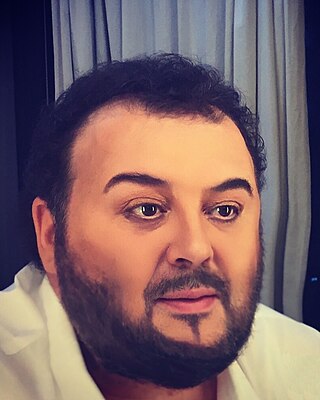
Fabio Sartori is an Italian operatic tenor. He is particularly known for his interpretations of Italian roles by Giuseppe Verdi, Giacomo Puccini and of the Verismo.
Jolanta Omilian, real name: Jolanta Omiljanowicz-Quattrini, is a Polish opera singer, singing mainly belcanto and dramatic soprano parts.
Gianluca Martinenghi is an Italian opera and symphonic music conductor. From 2016 to 2018 he was the Music director of Macedonian National Theatre. Currently he is the Artistic Secretary of Teatro Reggio in Turin, Italy,












